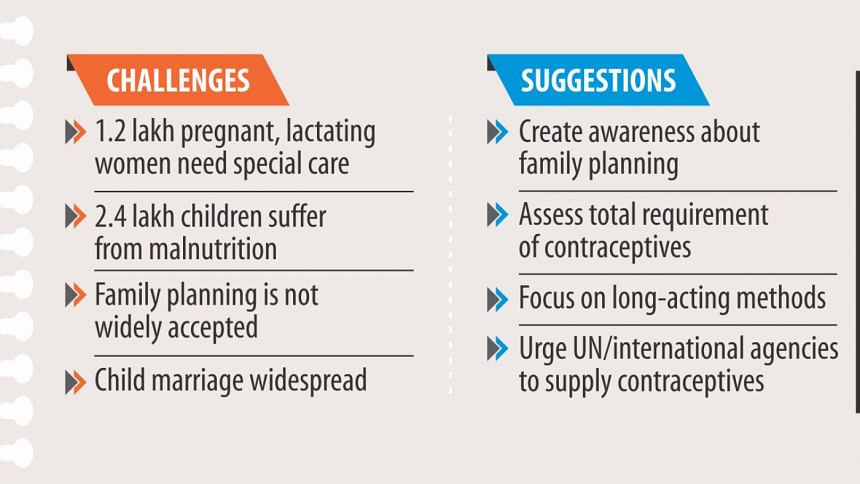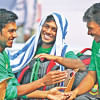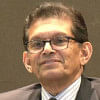Family Planning: Too important, yet ignored

Shortage of family planning services may aggravate the health problems of Rohingya refugees, especially mothers and children suffering from malnutrition, say government officials and experts.
Contraceptives are unpopular among Rohingyas largely for lack of education and awareness about family planning. Every Rohingya couple has six to seven children on average, say NGO officials at the refugee camps in Cox's Bazar.
Besides, child marriage is pervasive in the community, which leads to poor health of mother and child. The situation has worsened at the camps due to dearth of drinking water, adequate food and sanitary latrines.
"Bigger the size of a family, more is the chance that it would not be able to afford enough food and meet other necessities. This would lead to malnutrition and poor immunity," said a specialist on child and mother health at an international NGO, seeking anonymity.
More than six lakh Rohingyas from Myanmar's Rakhine State have taken shelter in crowded settlements in Cox's Bazar since August 25, in addition to some 212,000 Rohingyas who had entered Bangladesh in the previous years.
In Myanmar, they were denied citizenship and basic rights of education and health services.
Bangladesh government, UN agencies and NGOs have been engaged mostly in providing life-saving relief to the refugees. But family planning service has not been a focus, say officials.
"But family planning should be considered a life-saving service for the Rohingyas now because pregnancies under the present circumstances would be very risky," noted the health expert.
Of the total 8.2 lakh Rohingyas, around 60 percent are children. Of them, about 240,000 children, 120,000 pregnant and lactating women, and 204,000 adolescent girls need nutritional support, according to the Inter Sector Coordination Group (ISCG), a coordinating body of UN agencies and NGOs operating at the settlements.
Pregnant and lactating women as well as newborns need very special care in terms of nutrition, shelter and hygiene, said Mohammad Iqbal, an official at the office of Family Planning Association of Bangladesh in Cox's Bazar.
Over 18,000 pregnant Rohingya women, who are not getting enough nutrition, may find it difficult to get proper care during deliveries and afterwards, he said.
Dr Mohiuddin Hussain Khan, health sector coordinator of International Organisation for Migration, said the UN migration agency found a high rate of child marriage at the unregistered Rohingya settlements where it has been operating since 2013.
A number of women died there in the previous years because of complications related to teenage pregnancy, added the official.
For the safety of mothers and children, it is extremely important to have a comprehensive family planning programme that would include education on family planning, supply of contraceptives and monitoring, Mohiuddin added.
"Lack of family planning would lead to a population boom. It is likely to worsen the socio-economic condition of the Rohingyas given the realities. They live in overcrowded camps, and diseases are taking toll on their health," he said.
According to Cox's Bazar Civil Surgeon Dr Abdus Salam, at least 65 Rohingyas were diagnosed with tuberculosis, 69 with measles, 42 with HIV/AIDS and 1,400 with jaundice.
Every day, nearly 2,000 patients throng healthcare centres with respiratory tract infection and 1,700 with diarrhoea, he said.
Certain diseases such as tuberculosis and measles can spread fast in cramped conditions, Mohiuddin said.
"On average, seven to nine people live at each shelter in the Rohingya camps. This is in no way healthy. Birth of babies will only complicate things," he said, stressing the need for family planning services.
Iqbal said the situation could worsen unless awareness programmes are taken up and the refugees are provided with adequate contraceptives.
Pregnant women suffering from malnutrition are likely to give birth to malnourished babies, which would make matters even worse, he said.
ARE AUTHORITIES PREPARED?
Dr Abul Kalam Azad, director general of health services, said that apart from various health services, the government is working to address the issue of family planning for the Rohingyas.
New shelters for the refugees are being built in an organised way so that they can be given health and family planning services in a more disciplined manner, he said.
Dr Pintu Kanti Bhattacharjee, deputy director at the family planning office in Cox's Bazar, said his office provided the refugees with some 3,000 pills, 1,000 condoms and 3,600 injections through union health and family welfare centres.
Besides, Rohingya women are being given counselling on family planning, he said.
However, the need for family planning services and contraceptives has not been assessed yet, added Pintu.
Dr Sathyanarayanan Doraiswami, head of health section of the UN Population Fund in Bangladesh, said the refugees, especially mothers and children, should be given all necessary health services. But any birth control measures such as sterilisation should not be imposed on them.
"We need to understand their cultural barriers and take measures accordingly. We should not do anything that stigmatises them," he told this correspondent recently.
Family planning services, which are now being given in a limited and scattered way, should be provided in a coordinated way. The government, UN agencies and other NGOs must coordinate with each other, Doraiswami added.
RIGHT METHOD
Health officials said Rohingyas are interested in injections, not in pills or condoms. An injection can stop fertility of a woman up to three months.
Dr Bhattacharjee said his office has written to the health ministry, saying it could also consider permanent method of contraceptives like vasectomy and tubectomy.
"We will go for permanent methods only if the government permits and the Rohingyas accept it voluntarily," he said.
Dr Kaosar Afsana, head of Brac's Health, Nutrition and Population Programme, said there is a huge shortage of family planning services at the Rohingya settlements, and they have written to the health ministry for providing contraceptives.
Since Rohingya women prefer injections for birth control, the government can ask the UN bodies to supply those.
It is also important to take up a comprehensive programme for counselling the refugees on the benefits of contraceptives. Their community leaders can be engaged in this regard, said Afsana.
She, however, said sterilisation may not be a good option as it's a sensitive issue and also because the Rohingyas are foreign citizens.

 For all latest news, follow The Daily Star's Google News channel.
For all latest news, follow The Daily Star's Google News channel. 








Comments